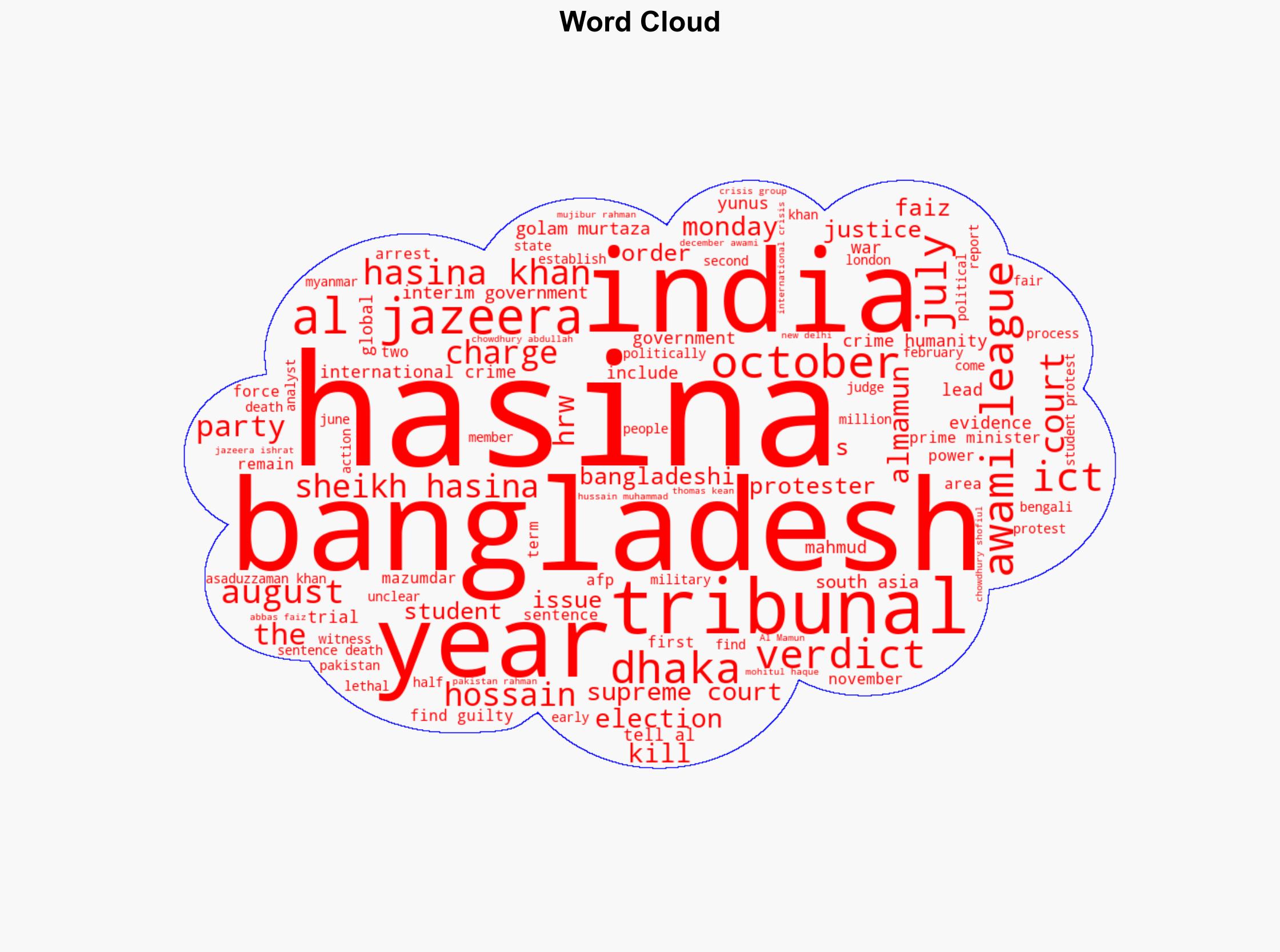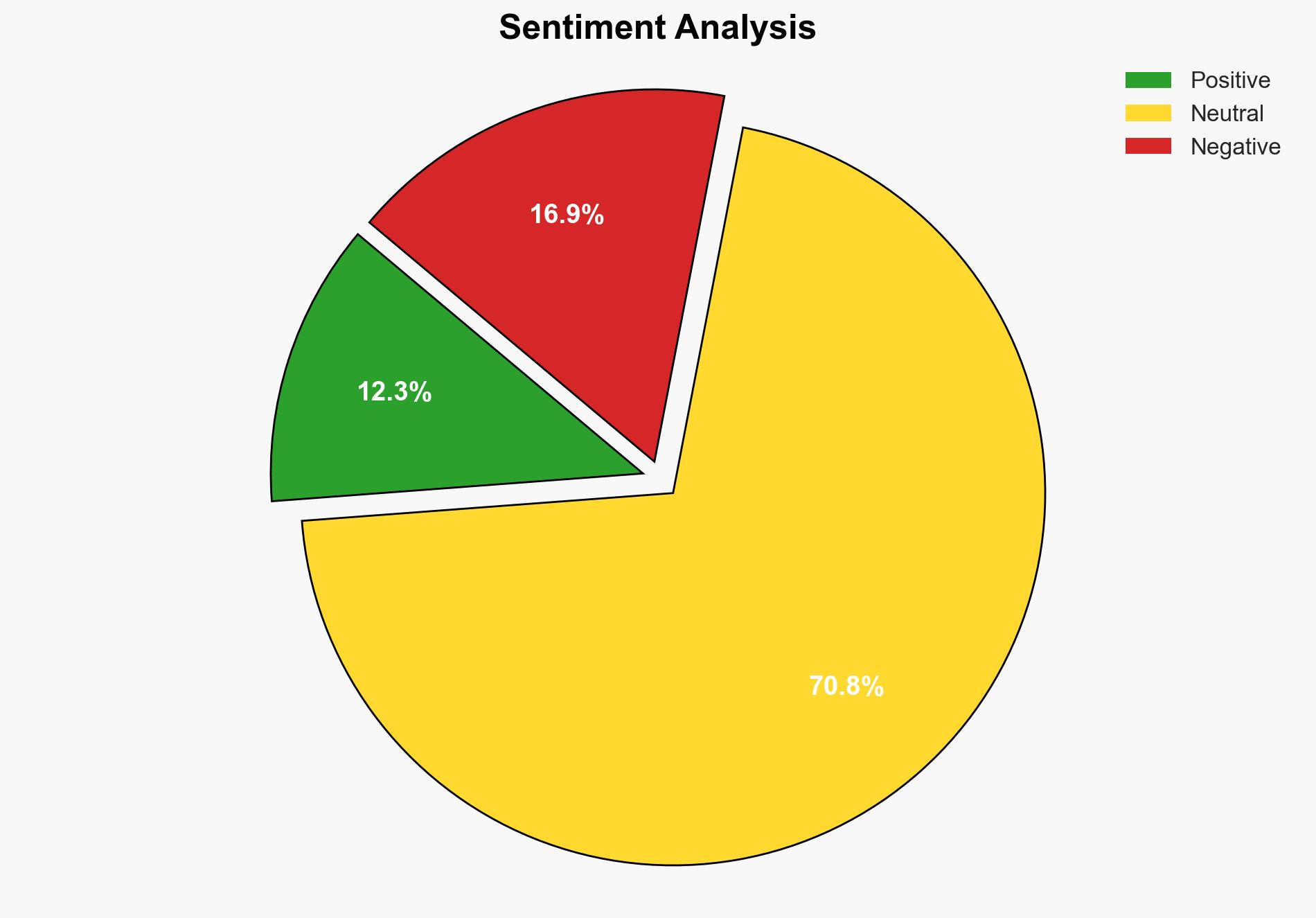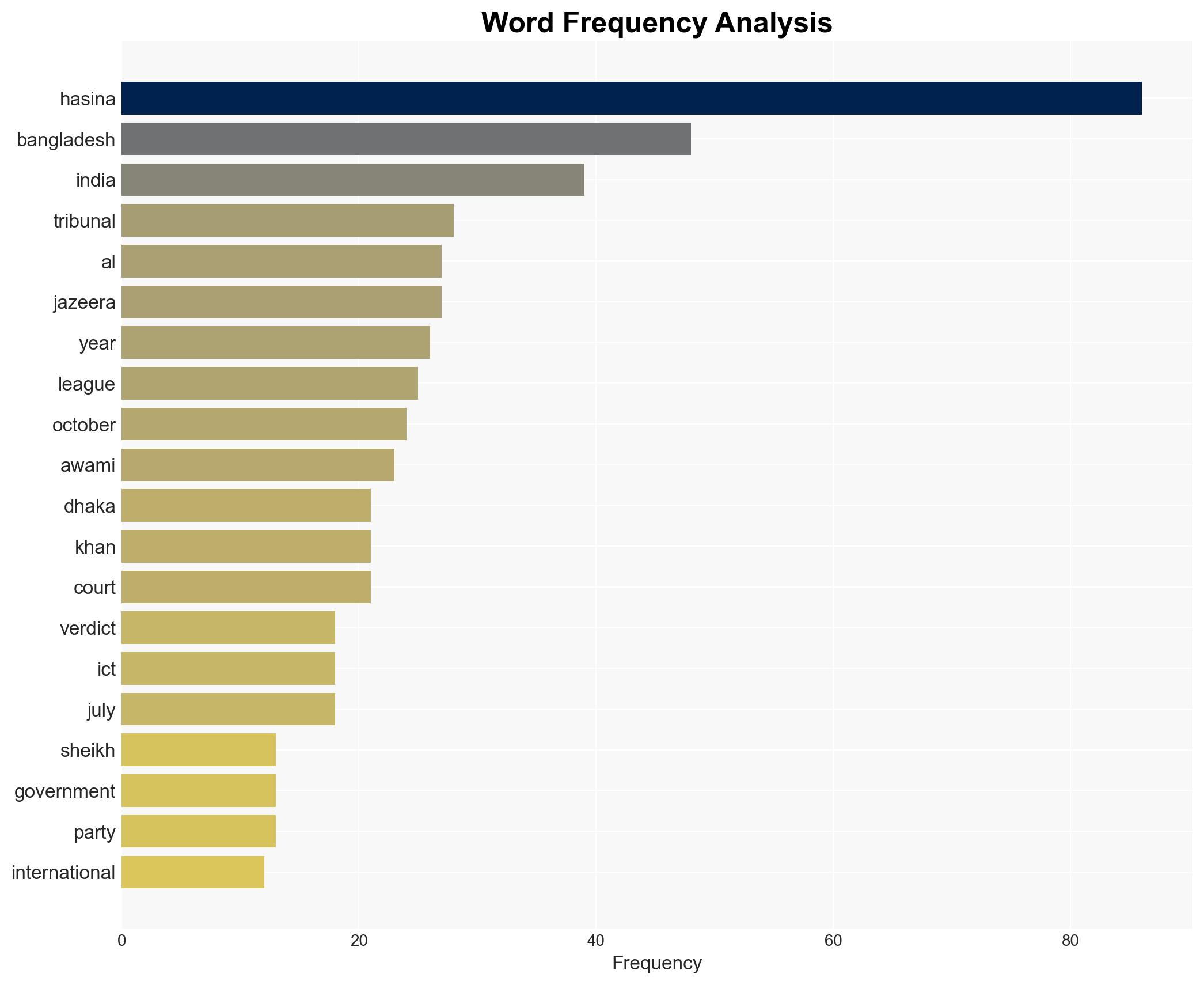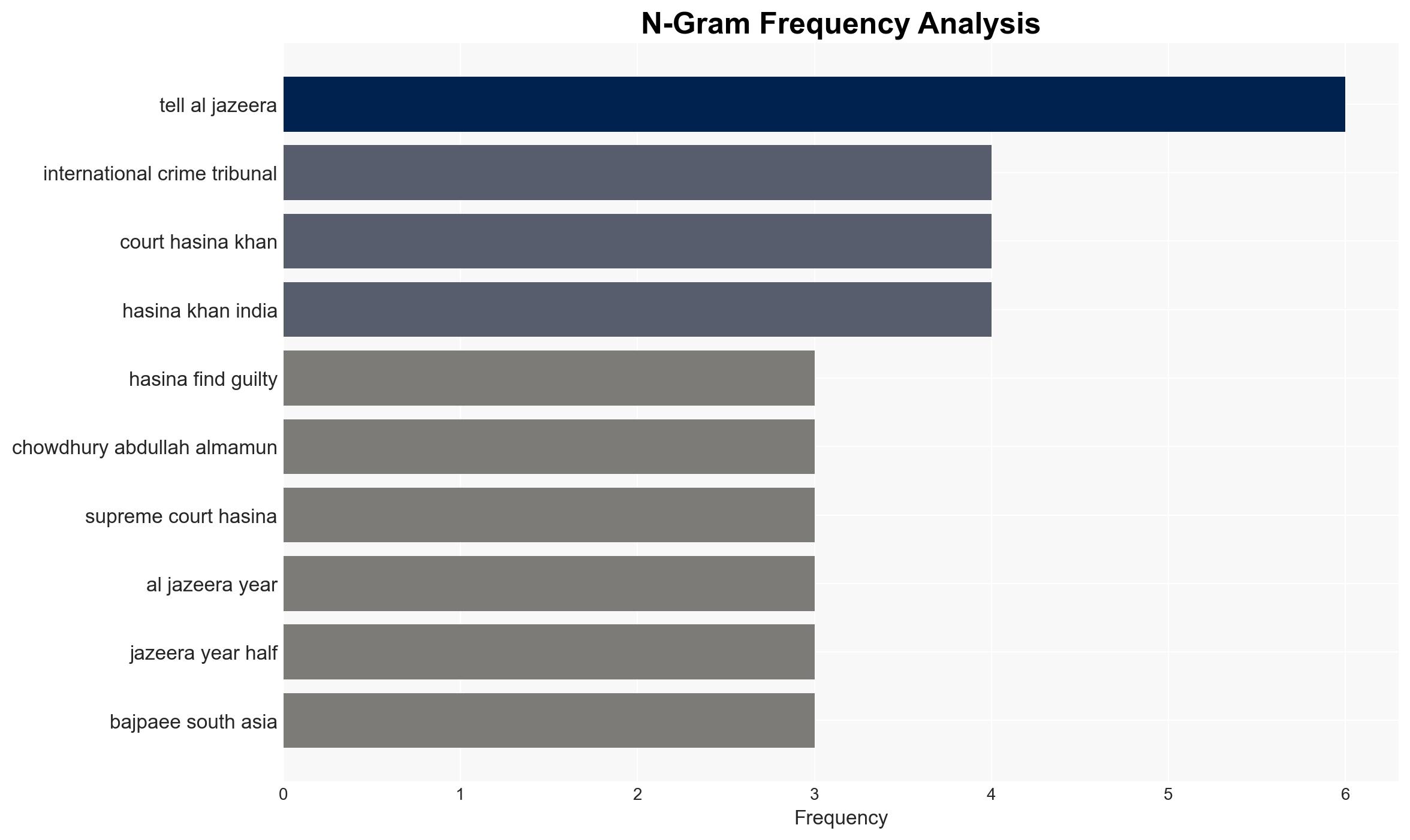Sheikh Hasina convicted of crimes against humanity what we know – Al Jazeera English
Published on: 2025-11-17
AI-powered OSINT brief from verified open sources. Automated NLP signal extraction with human verification. See our Methodology and Why WorldWideWatchers.
Intelligence Report: Sheikh Hasina Conviction Analysis
1. BLUF (Bottom Line Up Front)
The conviction of Sheikh Hasina for crimes against humanity by a special tribunal in Dhaka is likely politically motivated, aiming to weaken her influence and alter political dynamics in Bangladesh. The most supported hypothesis is that the tribunal’s actions are part of a broader strategy to consolidate power by her political opponents. Confidence level: Moderate. Recommended action: Monitor political developments in Bangladesh closely, assess potential impacts on regional stability, and prepare for possible diplomatic engagements.
2. Competing Hypotheses
Hypothesis 1: The conviction is a legitimate judicial process based on evidence of crimes committed during a crackdown on protesters.
Hypothesis 2: The conviction is politically motivated, designed to weaken Sheikh Hasina’s political influence and alter the power balance in Bangladesh.
Hypothesis 2 is more likely due to the timing of the conviction, the political context, and historical criticisms of the tribunal’s impartiality. The tribunal’s past actions and the absence of Sheikh Hasina during the trial suggest political motivations.
3. Key Assumptions and Red Flags
Assumptions include the impartiality of the tribunal and the validity of the evidence presented. Red flags include the absence of Sheikh Hasina during the trial, potential bias in the tribunal, and the historical context of political rivalries in Bangladesh. Deception indicators include the timing of the verdict and the lack of transparency in the judicial process.
4. Implications and Strategic Risks
The conviction could destabilize Bangladesh’s political environment, leading to increased tensions and potential unrest. Regionally, it may strain Bangladesh-India relations, especially if extradition becomes a contentious issue. Economically, instability could deter foreign investment. Informationally, the narrative around the conviction could be used to influence public opinion and international perceptions.
5. Recommendations and Outlook
- Monitor political developments and public reactions in Bangladesh to anticipate potential unrest.
- Engage with regional partners to assess the impact on regional stability and prepare for diplomatic interventions if necessary.
- Best-case scenario: Political tensions are managed, and stability is maintained.
- Worst-case scenario: Political unrest escalates, leading to violence and regional instability.
- Most-likely scenario: Political tensions persist, with periodic unrest and diplomatic challenges.
6. Key Individuals and Entities
Sheikh Hasina, Muhammad Yunus, Asaduzzaman Khan, Chowdhury Abdullah Al-Mamun.
7. Thematic Tags
Structured Analytic Techniques Applied
- Cognitive Bias Stress Test: Structured challenge to expose and correct biases.
- Bayesian Scenario Modeling: Use probabilistic forecasting for conflict trajectories or escalation likelihood.
- Network Influence Mapping: Map relationships between state and non-state actors for impact estimation.
- Narrative Pattern Analysis: Deconstruct and track propaganda or influence narratives.
Explore more:
National Security Threats Briefs ·
Daily Summary ·
Support us
·





